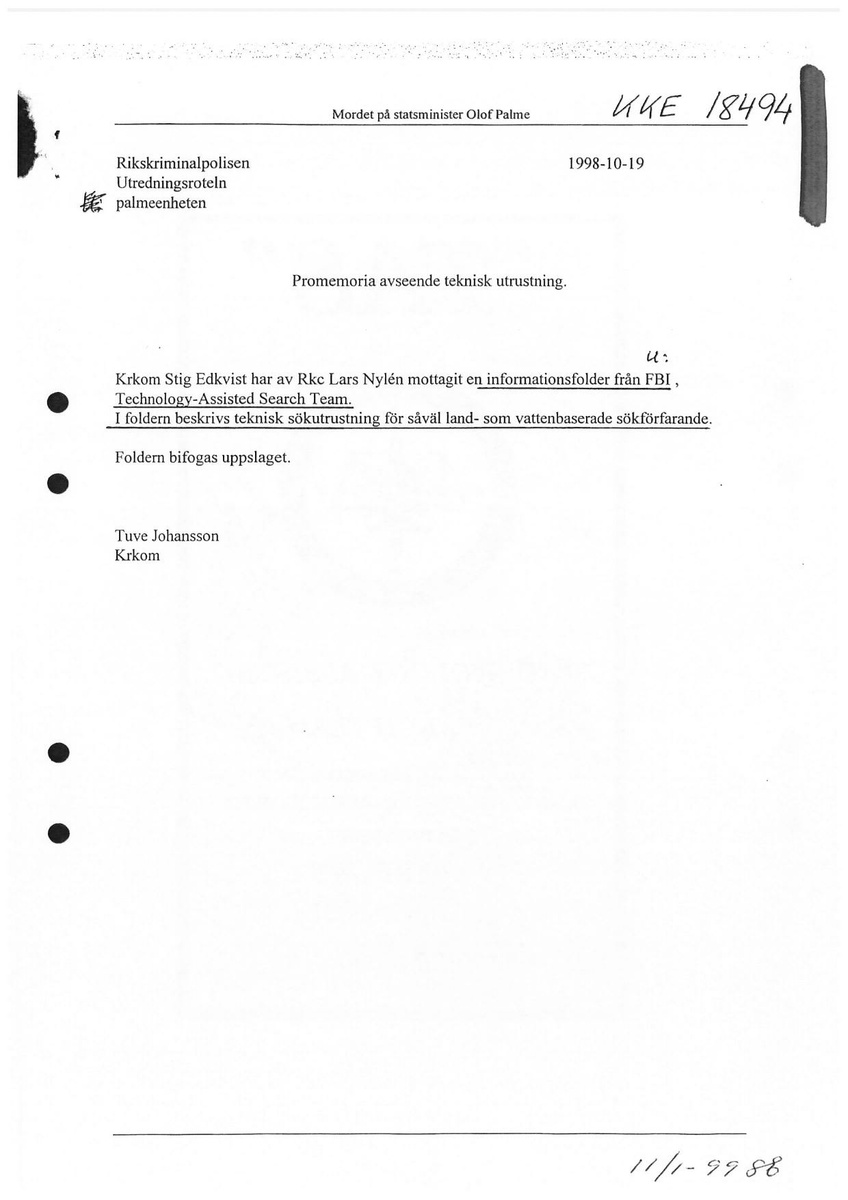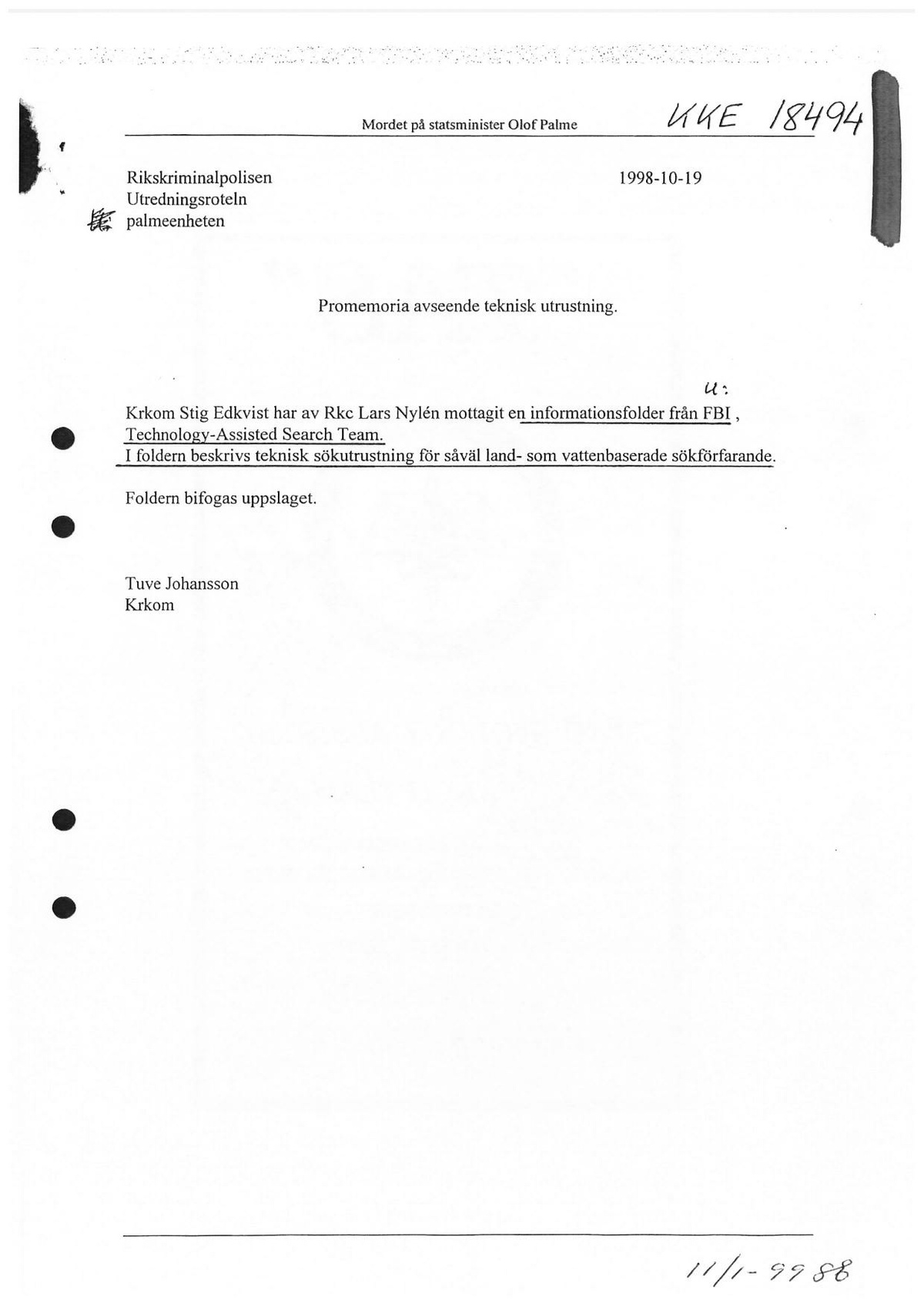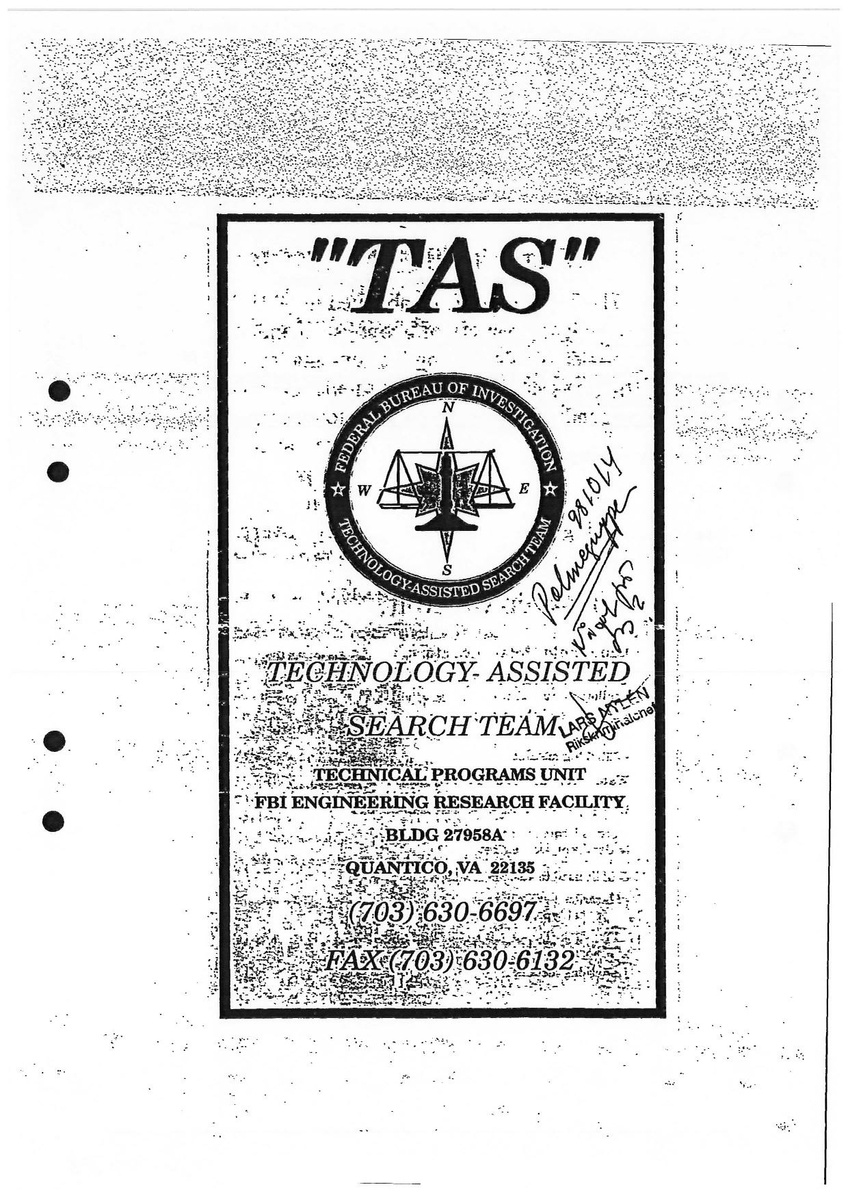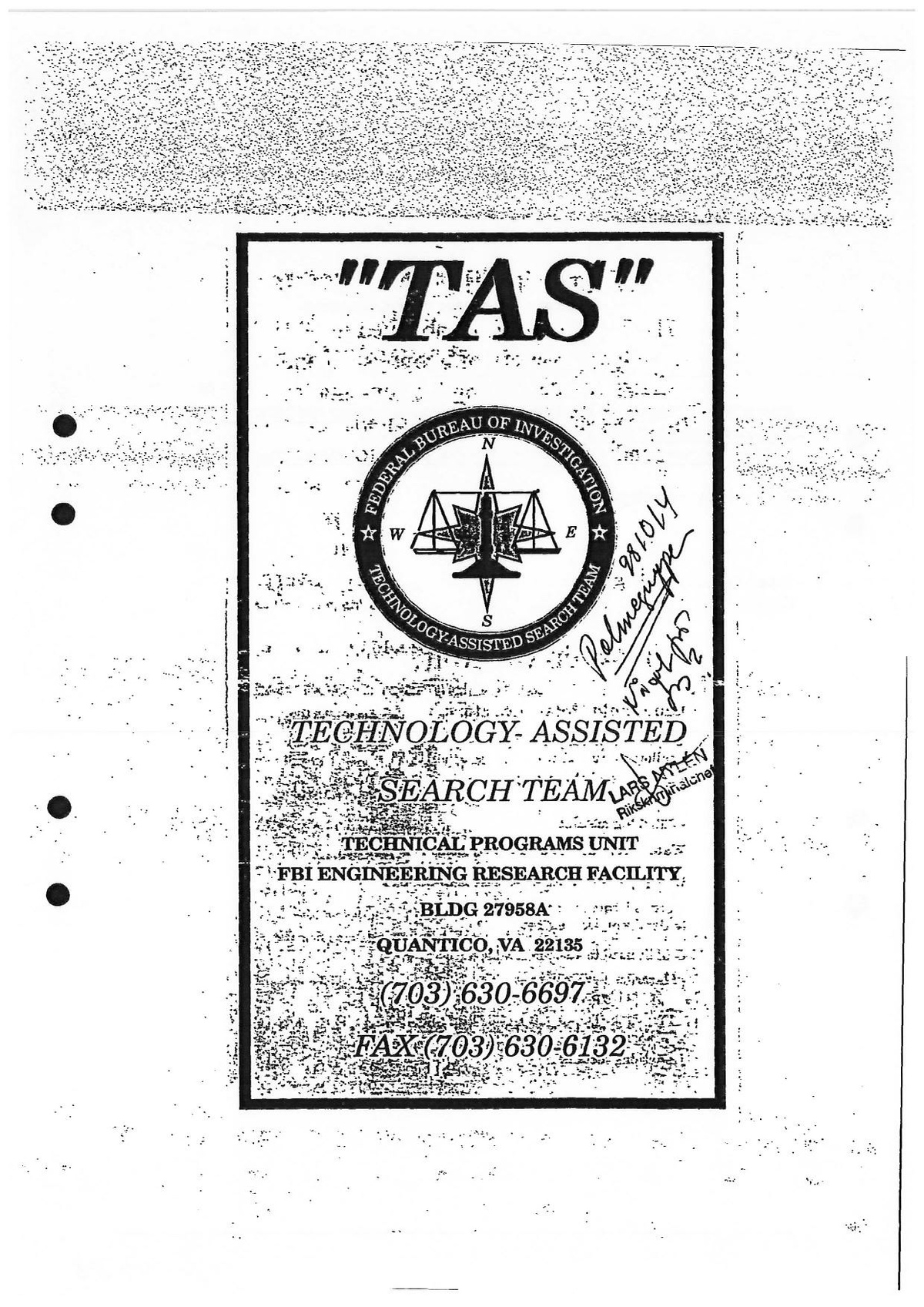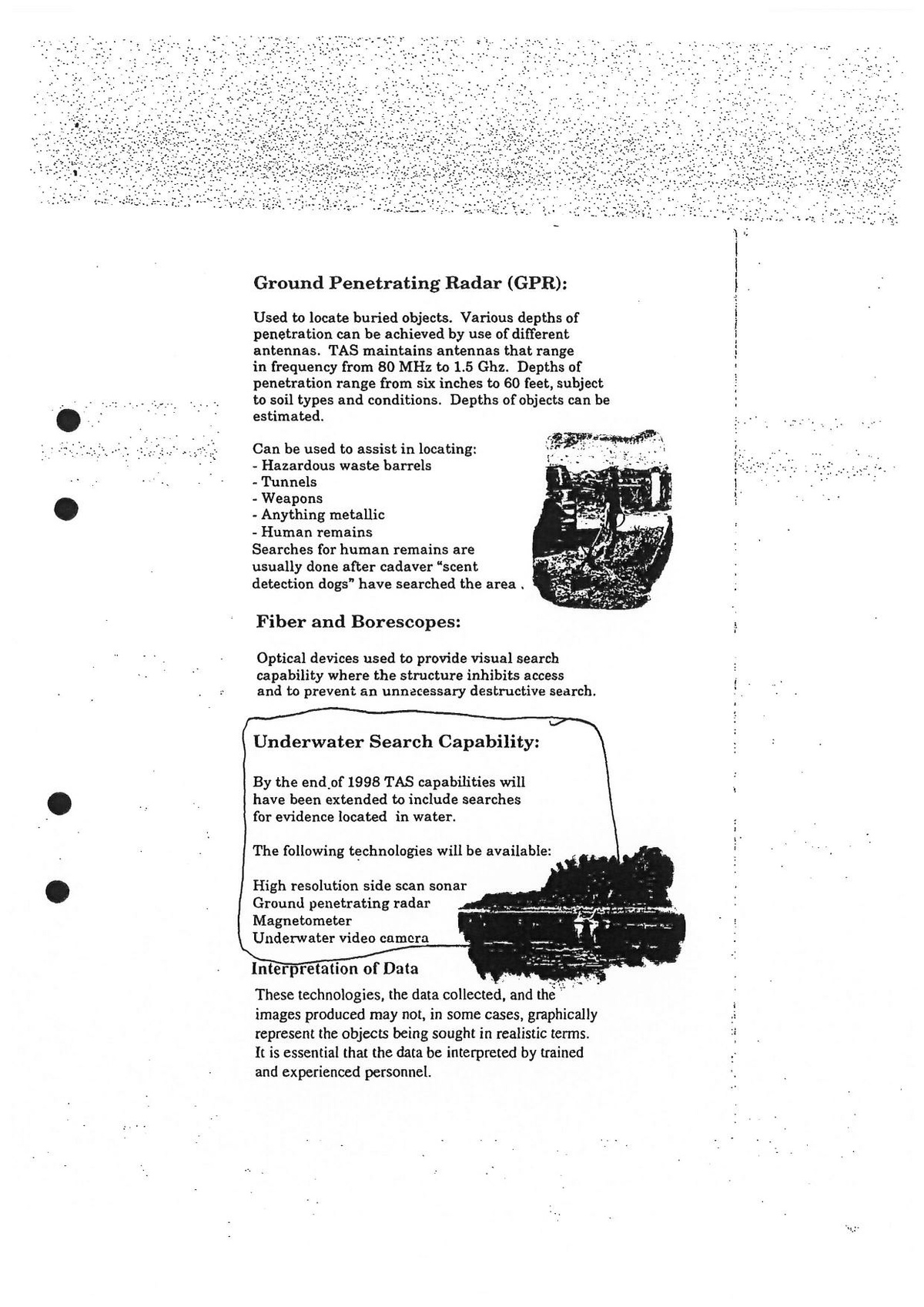Rikskriminalpolisen
Utredningsroteln palmeenheten
Mordet på statsminister Olof Palme
Tuve Johansson
Krkom
Promemoria avseende teknisk utrustning.
KKE 18494
1998-10-19
U:
Krkom Stig Edkvist har av Rkc Lars Nylén mottagit en informationsfolder från FBI,
Technology-Assisted Search Team.
I foldern beskrivs teknisk sökutrustning för såväl land- som vattenbaserade sökförfarande.
Foldern bifogas uppslaget.
Rikskriminalpolisen
Utredningsroteln palmeenheten
Mordet på statsminister Olof Palme
Tuve Johansson
Krkom
Promemoria avseende teknisk utrustning.
KKE 18494
1998-10-19
U:
Krkom Stig Edkvist har av Rkc Lars Nylén mottagit en informationsfolder från FBI,
Technology-Assisted Search Team.
I foldern beskrivs teknisk sökutrustning för såväl land- som vattenbaserade sökförfarande.
Foldern bifogas uppslaget.
"TAS"
ܝܝܐܪ
BUREAU
T
OF
21...
INVESTIGATION
La der
E
1
TEAM
SEARCH T
DA SEARCH TEAM
TECHNOLOGY ASSISTED
A
Rikskryminalche
h101863
TECHNICAL PROGRAMS UNIT
FBI ENGINEERING RESEARCH FACILITY
BLDG 27958A*:
QUANTICO, VA 22135
(703) 630-6697
Relmesuppe
FAX (703) 630-6132
"TAS"
ܝܝܐܪ
BUREAU
T
OF
21...
INVESTIGATION
La der
E
1
TEAM
SEARCH T
DA SEARCH TEAM
TECHNOLOGY ASSISTED
A
Rikskryminalche
h101863
TECHNICAL PROGRAMS UNIT
FBI ENGINEERING RESEARCH FACILITY
BLDG 27958A*:
QUANTICO, VA 22135
(703) 630-6697
Relmesuppe
FAX (703) 630-6132
Ground Penetrating Radar (GPR):
Used to locate buried objects. Various depths of penetration can be achieved by use of different antennas. TAS maintains antennas that range in frequency from 80 MHz to 1.5 Ghz. Depths of penetration range from six inches to 60 feet, subject to soil types and conditions. Depths of objects can be estimated.
Can be used to assist in locating: Hazardous waste barrels
Tunnels
- Weapons
- Anything metallic
- Human remains
Searches for human remains are
usually done after cadaver "scent detection dogs" have searched the area.
Fiber and Borescopes:
Optical devices used to provide visual search capability where the structure inhibits access and to prevent an unnecessary destructive search.
-
Underwater Search Capability:
By the end of 1998 TAS capabilities will have been extended to include searches for evidence located in water.
The following technologies will be available:
High resolution side scan sonar
Ground penetrating radar
Magnetometer
Underwater video camera
Interpretation of Data
These technologies, the data collected, and the images produced may not, in some cases, graphically represent the objects being sought in realistic terms. It is essential that the data be interpreted by trained and experienced personnel.
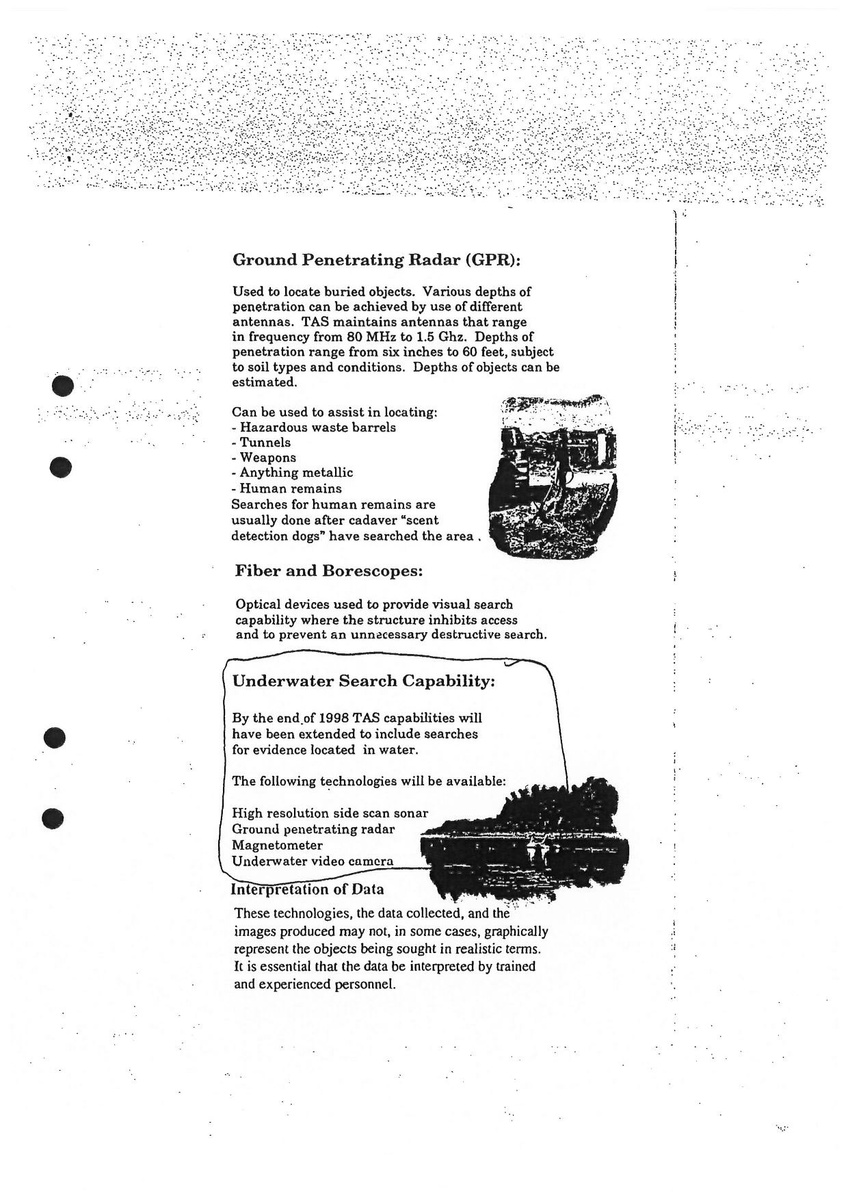
Ground Penetrating Radar (GPR):
Used to locate buried objects. Various depths of penetration can be achieved by use of different antennas. TAS maintains antennas that range in frequency from 80 MHz to 1.5 Ghz. Depths of penetration range from six inches to 60 feet, subject to soil types and conditions. Depths of objects can be estimated.
Can be used to assist in locating: Hazardous waste barrels
Tunnels
- Weapons
- Anything metallic
- Human remains
Searches for human remains are
usually done after cadaver "scent detection dogs" have searched the area.
Fiber and Borescopes:
Optical devices used to provide visual search capability where the structure inhibits access and to prevent an unnecessary destructive search.
-
Underwater Search Capability:
By the end of 1998 TAS capabilities will have been extended to include searches for evidence located in water.
The following technologies will be available:
High resolution side scan sonar
Ground penetrating radar
Magnetometer
Underwater video camera
Interpretation of Data
These technologies, the data collected, and the images produced may not, in some cases, graphically represent the objects being sought in realistic terms. It is essential that the data be interpreted by trained and experienced personnel.
